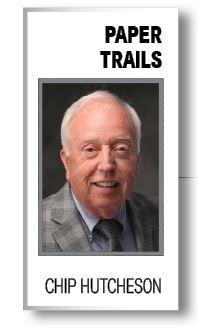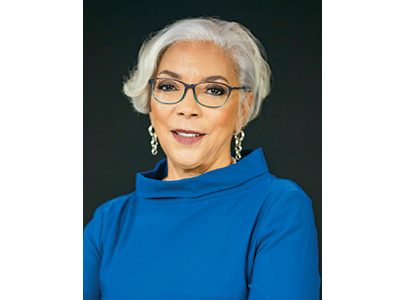Consider principles by Walter Williams
Chip Hutcheson
Dec 1, 2023


Any sports fan is familiar with thoughts voiced by a coach who has just seen his team lose a game. Quite often the coach comments, “We’ve got to get back to the basics.” At a time when many newspapers are struggling to maintain subscribers and advertisers, perhaps that advice is pertinent for our industry, as well.
But how does getting back to the basics apply to our profession? It would do us well to consider principles established more than a century ago by Walter Williams, who started the world’s first school of journalism in 1908 at the University of Missouri. Williams wrote The Journalist’s Creed — a comprehensive statement on principles, values and standards of journalists. Let’s examine portions of that creed.
It begins, “I believe in the profession of journalism.” In this day of the public being swayed — and not for the good — by the 24-hour news cycle on television and social media tirades, I am thankful for journalists who stick to the facts and play a vital role in civic democracy. We should continually applaud journalists who diligently inform citizens about what is happening in local governments, school systems and other organizations and entities in their communities. Keep on doing what you are doing. There are many journalists serving their communities without fanfare, but their service is crucial. Know there are people in this profession who continue to believe in you. Keep in mind that if the newspaper was to disappear, the public would suffer the most. Just go to any community that has lost its newspaper and you will find many who grieve over that loss.
The creed states that “clear thinking and clear statement, accuracy and fairness are fundamental to good journalism,” followed by “a journalist should write only what he holds in his heart to be true.” Following this principle means the journalist might not be popular but will command the public’s attention. Truth and fairness are the most vital of the basics in a journalist’s toolbox.
The creed also says “no one should write as a journalist what he would not say as a gentleman; that bribery by one’s own pocketbook is as much to be avoided as bribery by the pocketbook of another; that individual responsibility may not be escaped by pleading another’s instructions or another’s dividends.” That speaks to civility and integrity — two hallmarks that a journalist should always seek to uphold.
The creed maintains that “advertising, news and editorial columns alike should serve the best interests of readers; that a single standard of helpful truth and cleanness should prevail for all; that the supreme test of good journalism is the measure of its public service.”
That instructs that the journalist’s work is focused on public service.
One of my great concerns today is the blurring of lines between news and editorial columns. It’s seen most often in organizations with pagination centers that design pages for multiple newspapers. I realize those pagination centers are tasked with designing pages at a hurried pace, but it’s not uncommon to see syndicated op-ed articles run with no label as “opinion” or “commentary.” That practice is detrimental to the public.
Readers should clearly know what is a factual piece and what is an opinion piece.
The final paragraph of the creed is so inspiring and profitable. It says that “journalism which succeeds best — and best deserves success — fears God and honors Man.”
Those two phrases are not in conflict but are symbiotic. They speak of the necessity of integrity in what is presented to the public in the printed product and on newspaper websites and help journalists realize that they are accountable for how they do their job. Let that phrase sink in, post it in strategic locations in the newspaper office and emphasize it periodically in staff meetings and email conversations. The journalist who seeks to fulfill that admonition will find that he or she can sleep much better at night.
That paragraph concludes that successful journalism should be “unmoved by pride of opinion or greed of power, constructive, tolerant but never careless, self-controlled, patient, always respectful of its readers but always unafraid; quickly indignant at injustice; unswayed by the appeal of privilege or the clamor of the mob; seeks to give every man a chance and, as far as law and honest wage and recognition of human brotherhood can make it so, an equal chance; is profoundly patriotic while sincerely promoting international good will and cementing world-comradeship; is a journalism of humanity, of and for today’s world.”
That, my friends and co-laborers, should be our marching orders as we get back to the basics of serving our communities.
Chip Hutcheson is the retired publisher of The Times Leader in Princeton, Kentucky. He was NNA president in 2015. He currently serves as a content strategist for Kentucky Today, the online news website of the Kentucky Baptist Convention. chiphutcheson@yahoo.com









